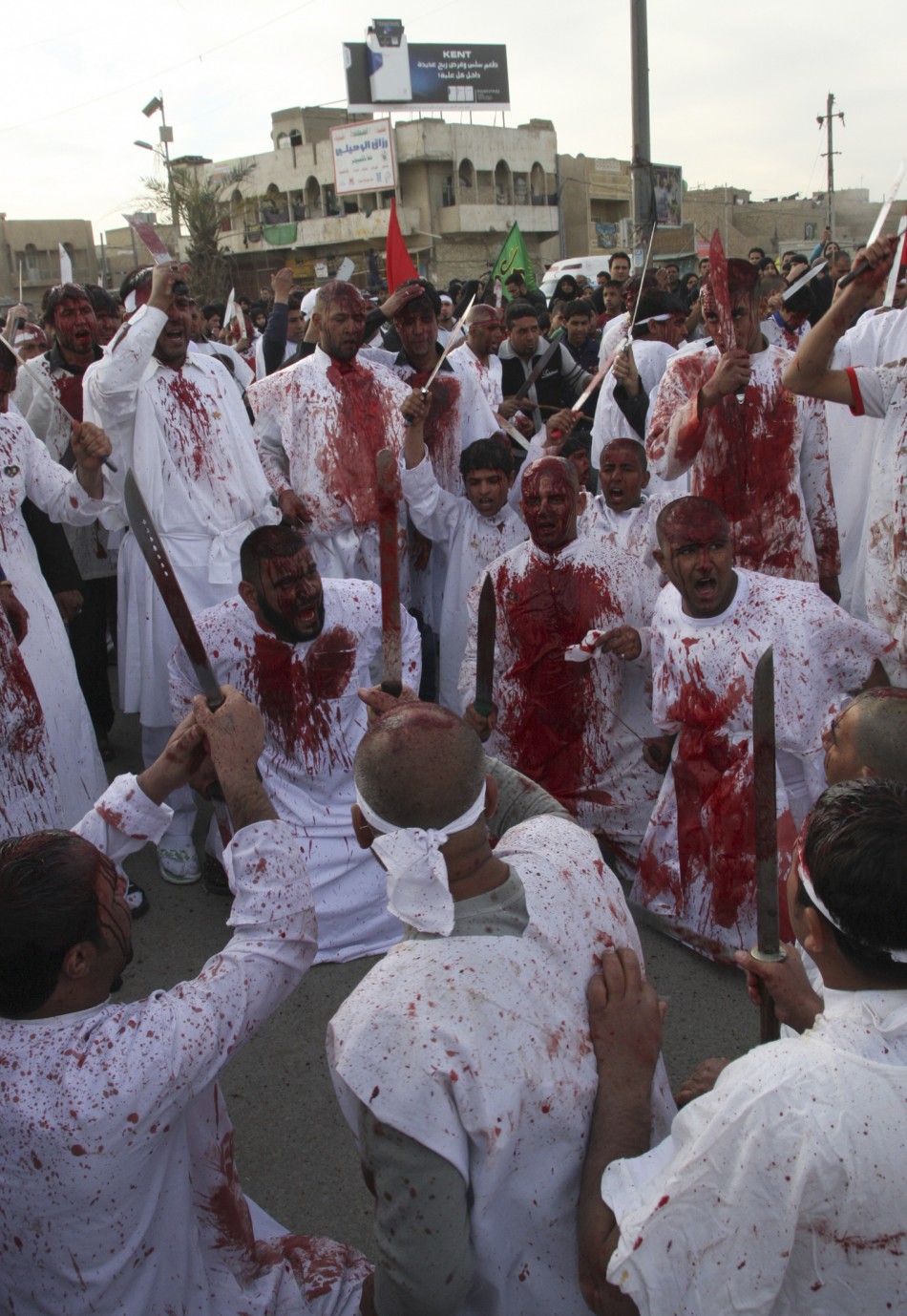Ashura Festival Celebrations in Images


The day of Ashura is marked by the entire Muslim community but for Shia Muslims it represents a major religious festival.
The literal meaning of the Arabic word ashura means "tenth" and in Islam, Ashura refers specifically to the 10th day of the lunar month of Muharram.
Muharram is an important month to Muslims as it refers to one of four holy months and a time when Muslims are encouraged to perform optional fasts, avoid fighting and avoid unlawful acts.
From a historical perspective, Muharram represents the month when Muslims fled persecution in Mecca and migrated to Medina.
Ashura in Shia Islam
For Shia Muslims Ashura is a day of mourning the martyrdom of Imam Hussein, the Grandson of the Prophet Muhammad, in 680 AD during the Battle for Karbala.
The celebrations are mainly made up of mourning rituals and passion plays re-enacting the martyrdom.
Shia men and women dressed in black also parade through the streets while slapping their chests and chanting.
Some Shia men also seek to emulate the suffering of Hussein by flagellating themselves or cutting their foreheads.
Ashura in Sunni Islam
For Sunni Muslims, Ashura represents the day that Allah saved Moses and the Israelites by parting the Red Sea.
According to Muslim precepts, when the Prophet Muhammad migrated to Medina, the Jews told him that Moses fasted in gratitude on Ashura, a move then adopted by the Prophet himself and his followers.
Later, after fasting during the entire month of Ramadan became obligatory, the Ashura fast was declared optional.
Islamic Schism
The division between Shia and Sunni dates back to the death of the Prophet Muhammad and the question of who should become the leader of the Muslim community.
Sunni Muslims agreed with the position taken by many of the Prophet's companions and decided that the new leader should be elected from among those best capable of the job, and Abu Bakr ,an advisor of the Prophet became the first Muslim Caliph.
The word "Sunni" in Arabic comes from a word meaning "one who follows the traditions of the Prophet."
The Shia on the other hand were a political group that supported Ali, son-in-law of the Prophet Mohammed and the fourth Muslim caliph. They shared the belief that leadership should have stayed within the prophet's own family.
The word "Shia" in Arabic means followers; members of party" and the word is the short form of the saying Shīʻatu ʻAlī meaning "followers of Ali" or "faction of Ali".
Ali was murdered in AD 661 and his rival, Muawiya, claimed the caliphate.
When Caliph Muawiya was later succeeded by his son Yazid, Ali's son Hussein refused to accept his legitimacy and fighting between the two clans resumed.
Hussein and his followers were killed in battle near Karbala in AD 680. And the deaths of Ali and Hussein gave rise to the Shia cult of martyrdom.
Today, the Shias make up about 15% of the total worldwide Muslim population.
© Copyright IBTimes 2024. All rights reserved.





